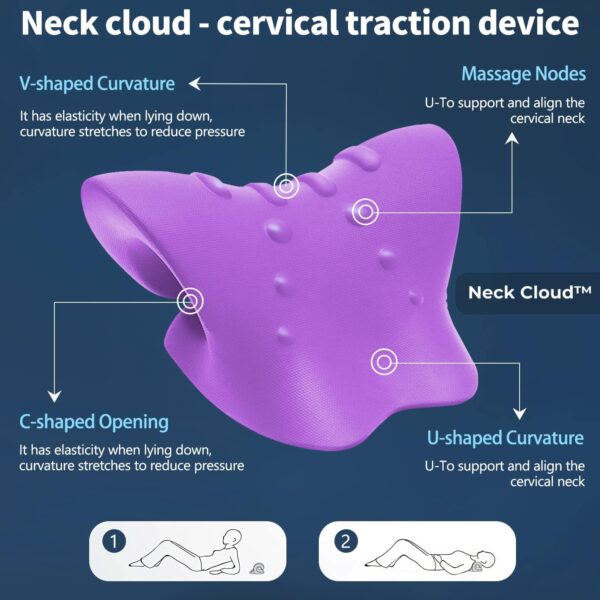The Impact of Anxiety on Neck Pain: Approaches for Decreasing Stress and Discomfort
In today's hectic world, it's no trick that stress and anxiety has actually become a common aspect in the beginning and worsening of neck discomfort. Join us on a journey to decipher the effect of stress and anxiety on neck discomfort and discover efficient means to alleviate discomfort and improve general top quality of life.
Recognizing Stress-Related Neck Pain
Neck pain is a typical issue that can often be credited to tension. Stress-related neck discomfort can materialize as tension, tightness, or discomfort in the neck and shoulder area. The connection between anxiety and neck discomfort exists in the body's physical action to stress and anxiety, which can cause muscular tissue stress and tightness in the neck muscles. Chronic tension can cause relentless neck discomfort and exacerbate current problems like cervical spondylosis or muscular tissue pressures.

Identifying Common Stress Locations
One common tension area is the neck, where tension usually manifests physically. Tension headaches, rigid neck muscle mass, and limited variety of activity are typical signs and symptoms of stress-related neck stress. Being mindful of these usual stress locations can aid individuals identify the physical signs of tension and take actions to address them before they intensify right into chronic pain or discomfort.
Carrying Out Relaxation Methods
Leisure strategies are important devices for reducing neck discomfort created by tension. In addition, activities like yoga exercise and tai chi incorporate both physical activity and relaxation, making them efficient techniques for minimizing stress and neck discomfort. By incorporating these relaxation methods right into your daily regimen, you can help handle stress levels, lower tension in the neck, and alleviate discomfort connected with stress-induced neck pain.
Including Self-Care Practices
Incorporating self-care methods is crucial for preserving total health and managing stress-related neck discomfort properly. Engaging in normal exercise, such as gentle stretching workouts or yoga exercise, can assist reduce tension in the neck and shoulders. Practicing great stance throughout the day and taking frequent breaks from extended resting or display time can also avoid pressure on the neck muscles.
Moreover, prioritizing Resources sufficient rest and developing a consistent rest routine can add significantly to lowering stress and anxiety levels and promoting leisure. Developing a soothing going to bed routine, such as reading a book or taking a warm bath, can assist prepare the body and mind for relaxing sleep. Additionally, maintaining a well balanced diet plan abundant in nutrients useful content and staying hydrated can sustain overall health and lower inflammation that might exacerbate neck pain.
Including mindfulness practices, such as deep breathing workouts or reflection, can help manage stress and promote relaxation. Taking time for oneself, participating in pastimes, and setting borders to safeguard personal time are additionally essential aspects of self-care that can add to decreasing stress and anxiety and alleviating neck pain.
Looking For Expert Help
Just how can individuals properly deal with persistent neck discomfort that is impacting their life and well-being? Looking for professional aid can be a vital step in handling and reducing neck discomfort. Consulting with healthcare specialists such as chiropractors, physiotherapists, or orthopedic specialists can supply valuable insights and tailored treatment plans. These specialists can carry out thorough evaluations to detect the underlying reasons for neck discomfort and recommend suitable treatments.
Chiropractics physician focus on back manipulation techniques to enhance placement and decrease stress in the neck location. Physiotherapists provide targeted workouts and stretches to reinforce muscular tissues, improve adaptability, and improve total neck function. Orthopedic experts can give sophisticated medical treatments such as shots or surgical alternatives for serious instances of neck discomfort.
Verdict

Stress-related neck pain can show up as tension, rigidity, or discomfort in the neck and shoulder location. The link in between tension and neck pain exists in the body's physiological feedback to tension, which can result in muscular tissue stress and rigidity in the neck muscle mass. Stress headaches, rigid neck muscular tissues, and limited range of movement are usual symptoms of stress-related neck tension. By including these relaxation strategies right into your daily routine, you can assist take care of anxiety levels, lower stress in the neck, and relieve pain linked with stress-induced neck discomfort.
